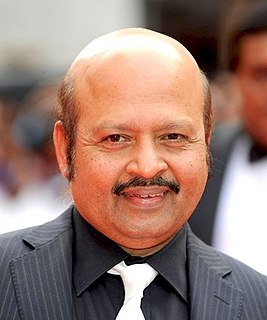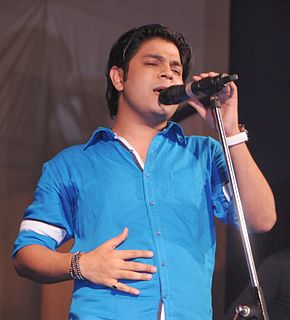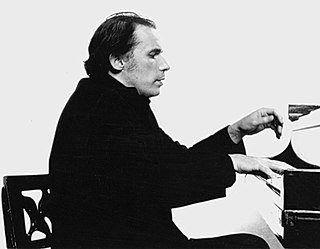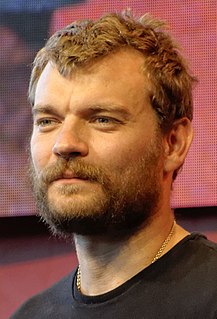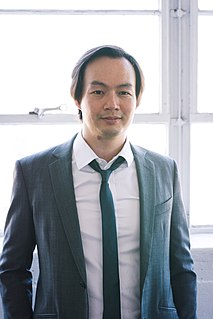A Quote by Rajesh Roshan
A composer like me finds it impossible to work with today's producers. They want to tell you exactly how to compose, which notes to play, which rhythms to put in which part of the song.
Related Quotes
There was another thing I heartily disbelieved in - work. Work, it seemed to me even at the threshold of life, is an activity reserved for the dullard. It is the very opposite of creation, which is play… The part of me which was given up to work, which enabled my wife and child to live in the manner which they unthinkingly demanded, this part of me which kept the wheel turning - a completely fatuous, ego-centric notion! - was the least part of me. I gave nothing to the world in fulfilling the function of breadwinner; the world exacted its tribute of me, that was all.
I think that if I were required to spend the rest of my life on a desert island, and to listen to or play the music of any one composer during all that time, that composer would almost certainly be Bach. I really can’t think of any other music which is so all-encompassing, which moves me so deeply and so consistently, and which, to use a rather imprecise word, is valuable beyond all of its skill and brilliance for something more meaningful than that — its humanity.
Composer” is a word which here means “a person who sits in a room, muttering and humming and figuring out what notes the orchestra is going to play.” This is called composing. But last night, the Composer was not muttering. He was not humming. He was not moving, or even breathing. This is called decomposing.
Even the song of birds, which we can bring under no musical rule, seems to have more freedom, and therefore more for taste, than a song of a human being which is produced in accordance with all the rules of music; for we very much sooner weary of the latter, if it is repeated often and at length. Here, however, we probably confuse our participation in the mirth of a little creature that we love, with the beauty of its song; for if this were exactly imitated by man (as sometimes the notes of the nightingale are) it would seem to our ear quite devoid of taste.
People create the illusion of acting natural, which is what I think most documentarians do in part because of the direct cinema orthodoxies that came into play really in the '60s. That moment of performance is a tremendous opportunity to make visible something hitherto invisible, which is how people want to be seen. How do they see themselves? What are the scripts, fantasies, genres by which they imagine themselves? How is storytelling part of what we are as human beings? We wouldn't kill each other en masse if it weren't for storytelling. We wouldn't be able to live with ourselves.
Today is [the feast of] Santa Rita, Patron Saint of impossible things - but this seems impossible: let us ask of her this grace, this grace that all, all, all people would do good and that we would encounter one another in this work, which is a work of creation, like the creation of the Father. A work of the family, because we are all children of God, all of us, all of us! And God loves us, all of us! May Santa Rita grant us this grace, which seems almost impossible. Amen.
There is no dearth of talented lyricists and I know many of them don't get an opportunity. After I received success, many of them approached me via e-mail or phone calls to tell me about their work. If I feel that a song written by a lyricist is fit for a film on which I am working as a composer, I give them the break.
In theater they want to put you on a contract a year in advance and I don't really like that. That's the reason why I became an actor - I like the freelance work. It's interesting, I like not being told what to do still, and I have a job where people tell me exactly what to do, so maybe I don't know myself as well as I want to. I think my last play I did was three years ago.
It is a great honor for me to be compared to Henri Cartier-BressonBut I believe there is a very big difference in the way we put ourselves inside the stories we photograph. He always strove for the decisive moment as being the most important. I always work for a group of pictures, to tell a story. If you ask which picture in a story I like most, it is impossible for me to tell you this. I don't work for an individual picture. If I must select one individual picture for a client, it is very difficult for me.
